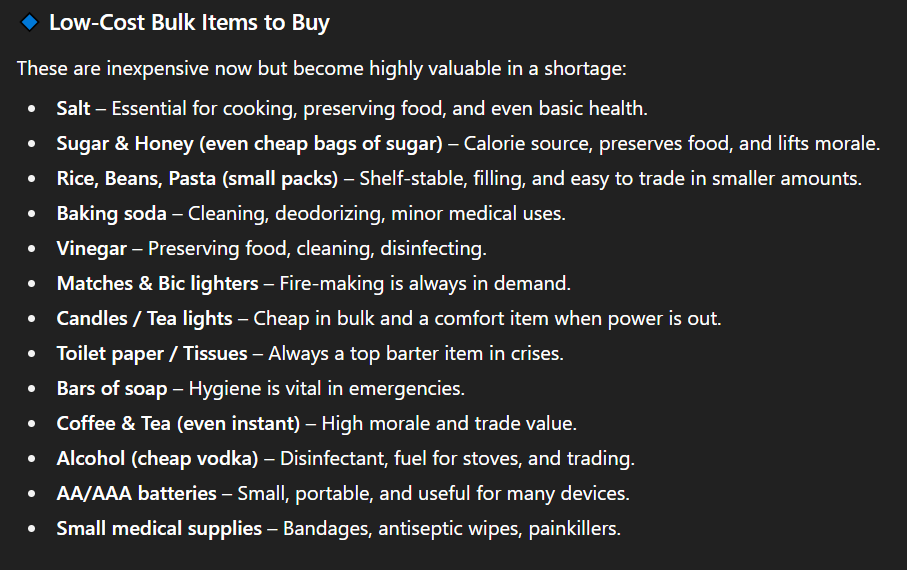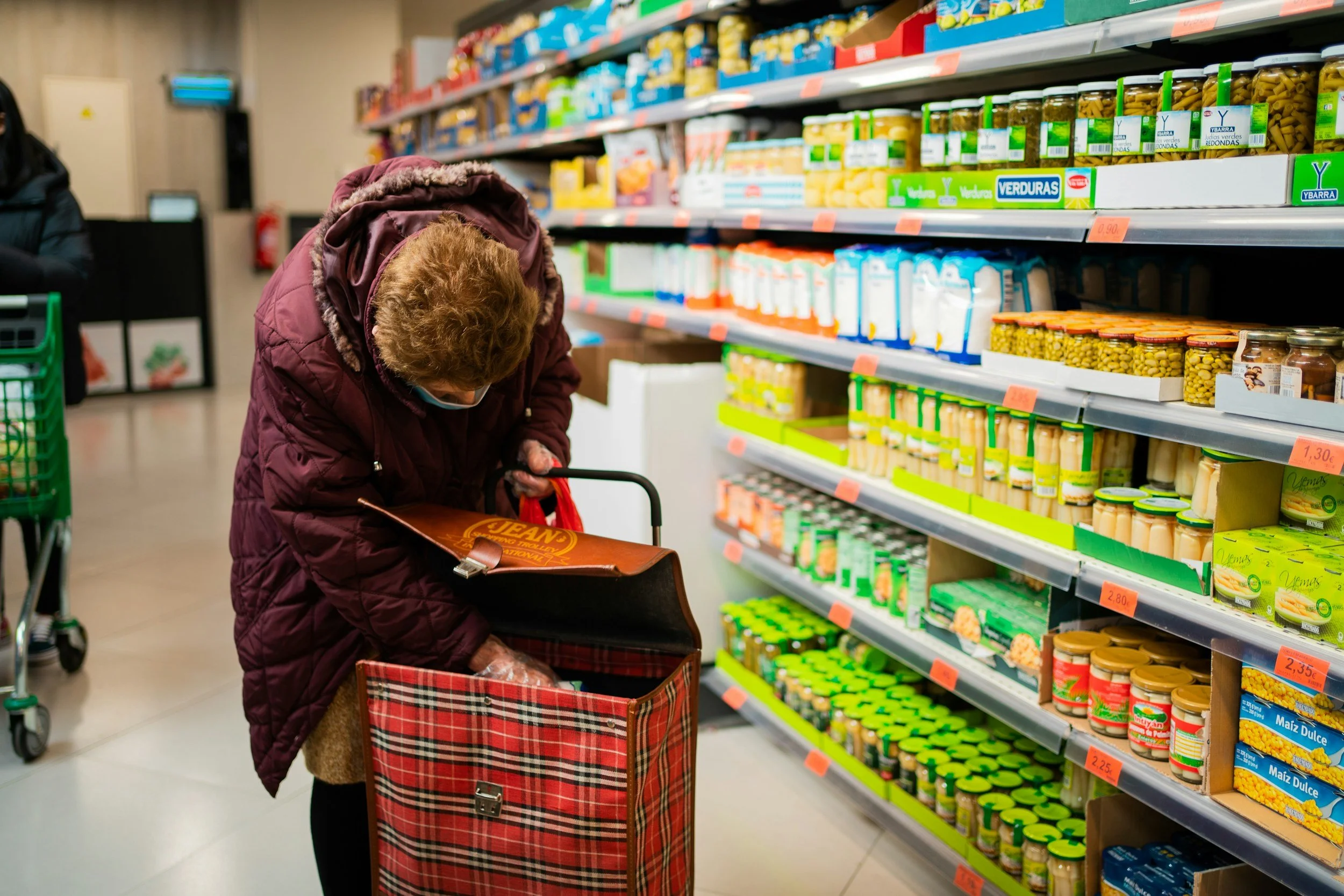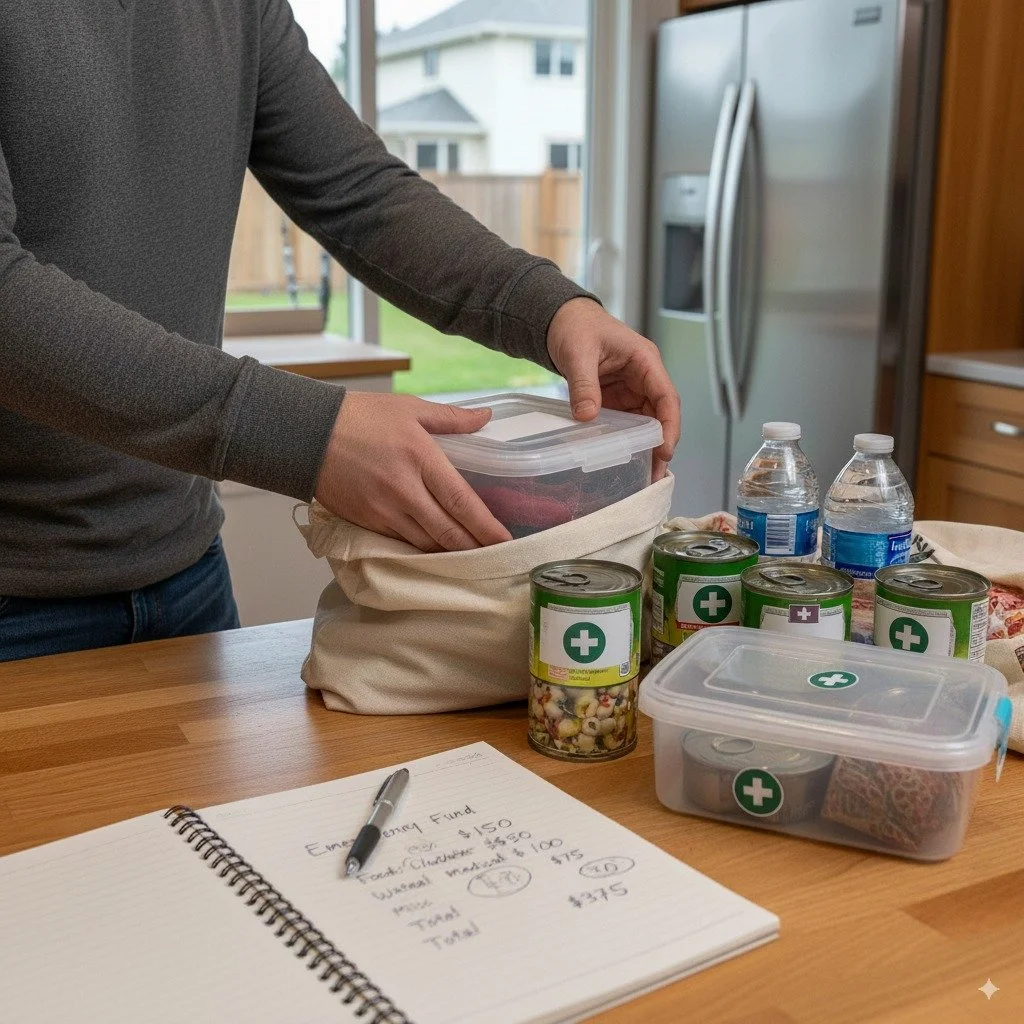Can AI Help Me Prep on a Budget?
Introduction
Hey there! Let's talk about something that might make you feel a little anxious – emergency preparedness. I know, I know. The word "prepping" might conjure up images of people with underground bunkers and rooms full of MREs that cost more than your monthly grocery budget.
But here's the thing: being prepared for emergencies doesn't have to drain your bank account or turn your home into a warehouse. In fact, some of the most practical preparedness happens gradually, thoughtfully, and yes – affordably.
I discovered this when I started using AI to help me approach prepping in a way that actually fits my real life and real budget. Instead of feeling overwhelmed by expensive gear lists or paralyzed by "what if" scenarios, AI helped me create a sensible, step-by-step approach to preparedness that doesn't stress my finances.
Let me show you how AI can be your budget-conscious prepping coach, helping you build security without breaking the bank.
Why Traditional Prepping Advice Doesn't Work for Most Budgets
Before we dive into how AI changes the game, let's be honest about why most prepping advice feels so overwhelming. Walk into any preparedness forum or website, and you'll find lists that look like shopping sprees at specialty stores. "Get a $300 water filter, a $200 emergency radio, six months of freeze-dried meals at $400 per month..."
The problem isn't that this stuff isn't useful – it's that most of us don't have $2,000 sitting around to spend on emergency supplies all at once. Traditional prepping advice often treats preparedness like you either do it all or you're not really prepared.
According to recent surveys, 68% of Americans don't have adequate emergency supplies, and the top reason cited isn't lack of awareness – it's cost concerns. People want to be prepared, but they need realistic ways to build preparedness gradually within their existing budget constraints.
This is where AI becomes incredibly valuable. Instead of following one-size-fits-all expensive lists, AI can help you create a personalized preparedness plan that works with your specific budget, living situation, and priorities.
How AI Transforms Budget-Friendly Prepping
1. Smart Prioritization Based on Your Real Risks
Instead of trying to prep for every possible scenario, AI helps you focus your limited budget on what's most likely to affect you:
"I live in [your location] and my monthly budget for emergency prep is $50. Based on common emergencies in my area and my living situation [apartment/house, family size, etc.], what should I prioritize buying first to get the most preparedness value for my money?"
AI doesn't just give you a generic list – it considers your specific geography, common local emergencies, and budget constraints to create a prioritized action plan.
2. Dual-Purpose Shopping Strategies
Here's where AI really shines in budget prepping. Instead of buying items that only serve emergency purposes, AI helps you find things that improve your daily life while also serving as prep:
"I want to build emergency supplies gradually through my regular shopping. What items can I buy that serve both everyday purposes and emergency preparedness? My monthly extra budget is $30 and I shop primarily at [store name]."
This approach means your preparedness budget isn't separate from your regular expenses – it's integrated smartly into purchases you're already making.
3. Seasonal and Sales Optimization
AI can help you time your preparedness purchases to maximize your budget:
"It's [current month]. What emergency preparedness items typically go on sale during this season? How can I take advantage of seasonal pricing to build my supplies more affordably?"
This strategic approach can stretch your prepping budget significantly further than buying everything at regular prices.
Practical AI Prompts for Budget Prepping
Let me share some of my favorite budget-focused prepping prompts:
For Starting Your Emergency Fund: "I want to build a small emergency fund alongside physical preparedness supplies. With $X available monthly for both, how should I split this between cash savings and physical supplies for maximum security?"
For DIY vs. Buy Analysis: "I'm deciding between making my own emergency supplies or buying ready-made versions. Compare the cost and effectiveness of DIY options versus store-bought for: [specific items like emergency food, first aid kits, etc.]. Factor in my time constraints and skill level."
For Gradual Building Plans: "Create a 12-month budget prepping plan for someone with $25-40 per month to spend. Prioritize items by importance and ensure each month builds logically on the previous month's purchases."
For Multi-Use Item Identification: "I need emergency supplies but want items that also improve my daily life. Suggest multi-purpose items under $30 each that serve both regular use and emergency preparedness for [your specific situation]."
The Psychology of Budget Prepping with AI
One thing I love about using AI for budget prepping is how it changes your relationship with preparedness from anxious to empowered. Traditional prepping can trigger scarcity mindset – "I need to buy everything now or I won't be safe!"
AI helps you approach prepping from an abundance mindset instead. You're not racing against time or trying to buy your way to security. You're methodically building resilience within your means, making informed choices about where your money will have the most impact.
Research in behavioral economics shows that people who approach preparedness gradually and systematically are 40% more likely to maintain their supplies and update them regularly compared to those who make large, rushed purchases.
Advanced Budget Prepping Strategies with AI
Once you're comfortable with basic budget prepping, try these sophisticated approaches:
Community Resource Mapping: "Help me identify free or low-cost preparedness resources in my community. What skills, supplies, or knowledge sharing opportunities might be available locally that could supplement my individual prepping efforts?"
Skill Development vs. Supply Focus: "I have limited money for prepping. Should I invest more in learning skills or buying supplies? Analyze the cost-effectiveness of each approach for someone in my situation [describe your circumstances]."
Bartering and Trade Strategies: "What items could I buy in bulk or learn to make that would be valuable for trading with neighbors during emergencies? Focus on low-cost items that would be useful to others."
Common Budget Prepping Mistakes to Avoid
Buying Cheap Versions of Critical Items: AI can help you identify where it's worth spending more for quality and where generic versions work fine.
Forgetting About Maintenance Costs: Ask AI to factor in ongoing costs like battery replacements, food rotation, and equipment maintenance.
Ignoring Free Resources: Many preparedness resources are free – knowledge, community connections, and skill development don't require large budgets.
Building Your Budget Prepping System
Here's how to create a sustainable approach:
Start with Assessment: Use AI to evaluate your current preparedness level and identify the biggest gaps for your budget level.
Create Monthly Goals: Set realistic monthly spending targets and let AI help you prioritize purchases.
Track Your Progress: Regular check-ins with AI about what's working and what needs adjustment.
Plan for Maintenance: Factor in rotation schedules and replacement costs from the beginning.
FAQ - Prep on a Budget
Q: How much should I budget monthly for emergency preparedness?
A: Most experts suggest starting with whatever you can consistently afford – even $10-15 monthly can build meaningful preparedness over time. AI can help you create a plan that works with your specific budget, whether it's $20 or $100 per month.
Q: Is it better to buy a little each month or save up for bigger purchases?
A: AI typically recommends a hybrid approach: buy essentials like water storage and basic food supplies immediately with small monthly purchases, while saving for larger items like generators or comprehensive first aid kits.
Q: Can AI help me prep if I'm renting or have limited storage space?
A: Absolutely! AI excels at space-efficient prepping solutions and can suggest items that work well in small spaces or rentals where you can't make permanent modifications.
Q: What if I can only afford $20 per month for prepping?
A: That's actually a great start! AI can create very effective preparedness plans for $20 monthly budgets by focusing on high-impact, multi-use items and gradual building over time.
Q: Should I use credit cards to buy emergency supplies if I don't have cash?
A: AI generally recommends against debt for preparedness supplies unless you're facing an immediate emergency. It's better to build slowly with cash than to create financial stress that reduces your overall security.
Q: How do I know if my budget prepping is actually effective?
A: Ask AI to regularly assess your preparedness level. Good budget prepping should gradually increase your ability to handle common emergencies like power outages, water disruptions, or job loss for increasing periods of time.
Final Thoughts
Here's what I want you to take away from this: being prepared for emergencies isn't a luxury that only people with big budgets can afford. It's a gradual process that anyone can start, regardless of their current financial situation.
The key shift that AI helps you make is moving from "I can't afford to prep" to "How can I prep affordably?" That change in perspective opens up so many possibilities that you might not have considered.
AI doesn't just help you spend your prepping budget more wisely – it helps you think about preparedness as an ongoing lifestyle choice rather than a massive project you need to complete all at once. Every small step you take makes you more resilient than you were yesterday.
Start where you are, with what you have. Maybe that's $15 this month for some extra canned goods and a flashlight. Maybe it's learning a new skill that costs nothing but time. Maybe it's having AI help you create a realistic 6-month plan that fits your actual budget.
The most important thing isn't having the perfect setup from day one. It's starting somewhere and building consistently. AI can be your guide for that journey, helping you make smart choices that maximize your security without maximizing your stress.
Remember: preparedness isn't about fear – it's about peace of mind. And peace of mind doesn't have to cost a fortune. It just takes a thoughtful approach and a willingness to start small and build gradually.
Your future self will thank you for every small step you take today, and your current self will appreciate an approach that doesn't strain your finances while building your security.
Ready to expand your preparedness knowledge? Check out our blogs AI Home Organization: How ChatGPT Can Help You Declutter and Simplify Your Space and AI Meal Planning: How ChatGPT Can Save You Time, Money, and Stress in the Kitchen


